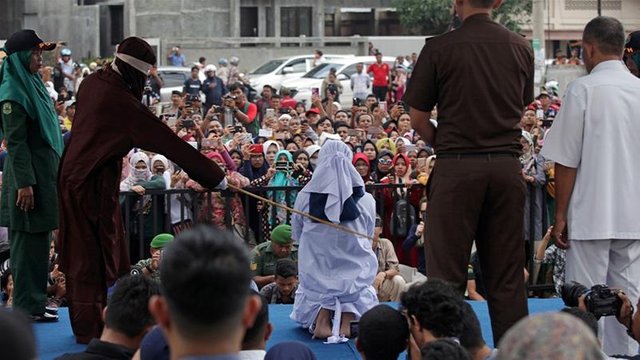'Shame and humiliation': Aceh's Islamic law violates human rights
Punishments under Sharia are rooted in cultural traditions and few are willing to speak publicly against it.

Banda Aceh, Indonesia - Hendra, an academic in Indonesia's semi-autonomous region of Aceh, vaguely remembers the first time he saw a public caning take place in his 20s. It was years ago and it didn't faze him much.
The 35-year-old cannot even remember what the people were accused of - just that they were taken to a public square at a local mosque and flogged with a rattan cane in front of a crowd of onlookers.
But in recent years, Hendra, a lecturer in communications at Ar-Raniry University in Banda Aceh, has started to feel differently.
Now he avoids public canings. "I always think, 'Imagine if that was a member of my family'," he told Al Jazeera. "Do these people really deserve this?"
Aceh, on the northern tip of Sumatra, is one of Indonesia's most religiously conservative areas, and is the only part of the archipelago to impose penalties on its residents under Islamic law.
Once one of the most powerful Islamic sultanates in Southeast Asia, the area had long used an informal kind of Islamic law mixed with local laws, known as "hukum adat". But the legislation was enhanced when Aceh's long-running separatist conflict ended in 2005. The laws have been gradually expanded to more offences, most recently in 2014.
Hi! I am a robot. I just upvoted you! I found similar content that readers might be interested in:
https://www.aljazeera.com/news/2019/06/humiliation-aceh-sharia-violates-human-rights-190619020406256.html